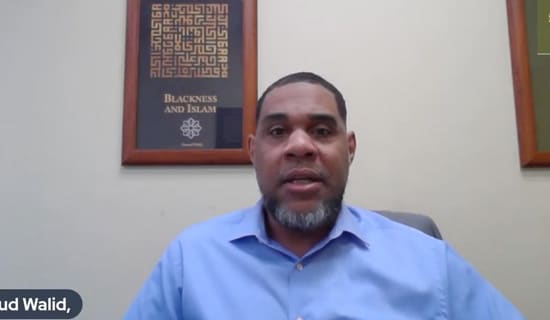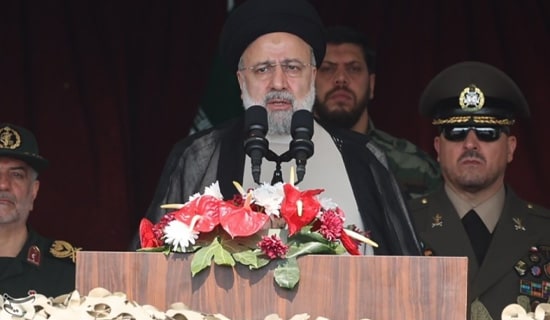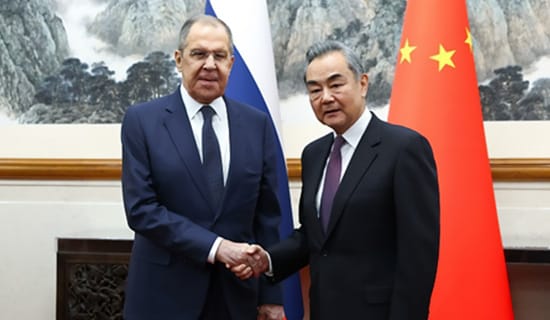Introduction
The Ahmadis are a religious movement founded in the late 19th century by Mirza Ghulam Ahmad (1839-1908), a spiritual leader from the town of Qadiyan, now in the Indian Punjab. Although they consider themselves Muslims, many Muslims reject them because of the Ahmadis' belief that their founder received divine revelation. This belief is regarded as a violation of the basic Islamic tenet which defines Muhammad as the last prophet. In Pakistan, Ahmadis are officially designated as non-Muslims, and suffer from persecution; many of them have been tried for blasphemy.
A large group of Islamic scholars recently held an international conference in Pakistan dealing with the question of the Ahmadi Muslims. According to the Urdu-language Pakistani daily Roznama Jang, the conference participants urged Pakistan's leaders to confront the Ahmadi Muslims, stressing that the sole responsibility for "countering the growth of this community" should not rest with the religious groups alone.
Following are details from the Roznama Jang report on the conference. [1]
Conference Participants, Speakers and Statements
The conference - held in Chichawatni, a town in the Pakistani Punjab - was organized by Majlis-e-Ahrarul Islam, a Pakistan-based organization that opposes the Ahmadi Muslims, and chaired by the organization's head, Syed Ataul Maheman Bukhari, who is also active against the Ahmadi community in India. The conference was held in honor of "the 10,000 martyrs of the Khatm-e-Nabuwat movement" - an Islamic movement which instigated the 1953 riots against the Ahmadi population in Lahore, which led to the first imposition of martial law in Pakistan.
SUPPORT OUR WORK

Among the conference participants were the emir of the International Khatm-e-Nabuwat Movement, the Saudi Maulana Abdul Hafeez Makki; the secretary-general of Alami Majlis Tahaffuz-e-Khatm-e-Nabuwat (The World Assembly for the Protection of the Finality of Prophethood), Maulana Azizur Rahman Jalandhari; the secretary-general of Jamaat-e-Islami Pakistan, Syed Munawwar Hasan; the secretary-general of Pakistan's Shari'a Council, Maulana Zahid Al-Rashidi, the leader of Ahl-e-Sunnah wal Jamaat, Maulana Ahmad Ludhianvi; the leader of Jamiat Ahl-e-Hadith, Maulana Abdullah Gurdaspuri; Maulana Ziauddin Azad of Jamiat Ulema-e-Islam; and Maulana Ahmad Ali Siraj, a Kuwaiti member of the International Khatm-e-Nabuwat movement.
Speakers at the conference included Syed Muhammad Kafeel Bukhari of Majlis-e-Ahrarul Islam; Abdul Lateef Khalid Cheema; Saifullah Khalid, chairman of Bazm-e-Raza; Sheikh Aijaz Ahmad Raza; Maulana Muhammad Yunus Hasan; Maulana Abdul Nayeem Nomani; Hafiz Muhammad Masood Dogar; Hafiz Muhammad Sharif Manchanabadi; Hafiz Muhammad Akram Ahrar; Maulana Shahid Imran Rasheedi; Hafiz Abdul Basit; Qari Muzaffar Khan; Pirji Qadri Abdul Jaleel; Maulana Abdus Sattar; Qari Manzoor Ahmad Tahir; Qari Abdul Jabbar; Qari Atiqur Rahman; Qari Bashir Ahmad; Muhammad Aslam Bhatti; Maulana Kalimullah Rasheedi; Qari Saeed ibn Shaheed; and others. The local leaders of the Pakistan Muslim League (N) also attended the conference.
At the conference, the participants said that Pakistan's political parties should confront the growing influence of "those who reject the finality of prophethood" (i.e. the Ahmadis), and that the incoming government should work to eradicate them. They also accused the Ahmadi Muslims of promoting the nationalist Indian ideal of "akhand bharat" (a united India), and of "weakening Pakistan's geographic and ideological boundaries."
Maulana Abdul Hafeez Makki said at the conference that about 20,000 Jews and Christians had converted to Islam in the month following 9/11, and that this "troubled the world of the infidels." He added that belief in Muhammad as the final prophet was a fundamental tenet of Islam, and that those who rejected it were therefore eternal enemies of the faith. Jamaat-e-Islami leader Syed Munawwar Hasan said that the Ahmadis have always relied on the infidels and on those in power to help them survive. He also said that the infidels have always striven to reduce religion to an aspect of personal identity by removing it from the mainstream of people's life.
The closing statement of the conference expressed concern that an Islamic system has not been implemented in Pakistan. It also asked the incoming Pakistani government to reconsider all pro-U.S. policies, and to stop the military operations in the tribal regions.
The participants said that it was unfortunate that the government was not doing anything to stop the international activities of the Ahmadi Muslims. They demanded that all Ahmadis serving in the armed forces be discharged, and that their property be confiscated by the government.
The Majlis-e-Ahrarul Islam organization was founded in the early 20th century by Syed Ataullah Shah Bukhari from the town of Patna, now in northern India. The organization was founded with the explicit goal of fighting the influence of the Ahmadi Muslims, who were then just beginning to emerge as a movement. Maulana Azizur Rahman Jalandhri, head of the World Assembly for the Protection of the Finality of Prophethood, said at the conference that it was thanks to the efforts of Syed Ataullah Shah Bukhari that the Ahmadi Muslims were declared a minority in Pakistan in 1974. (In Pakistan, the term "minority" designates non-Muslims, and many Sunni groups in the country are therefore demanding that Shi'ite Muslims also be declared a minority as well. Ahmadi Muslims are also designated a minority in Saudi Arabia).
* Tufail Ahmad is the director of MEMRI's Urdu-Pashtu Media Project.
Endnote:
[1] Roznama Jang (London), March 9, 2008.




